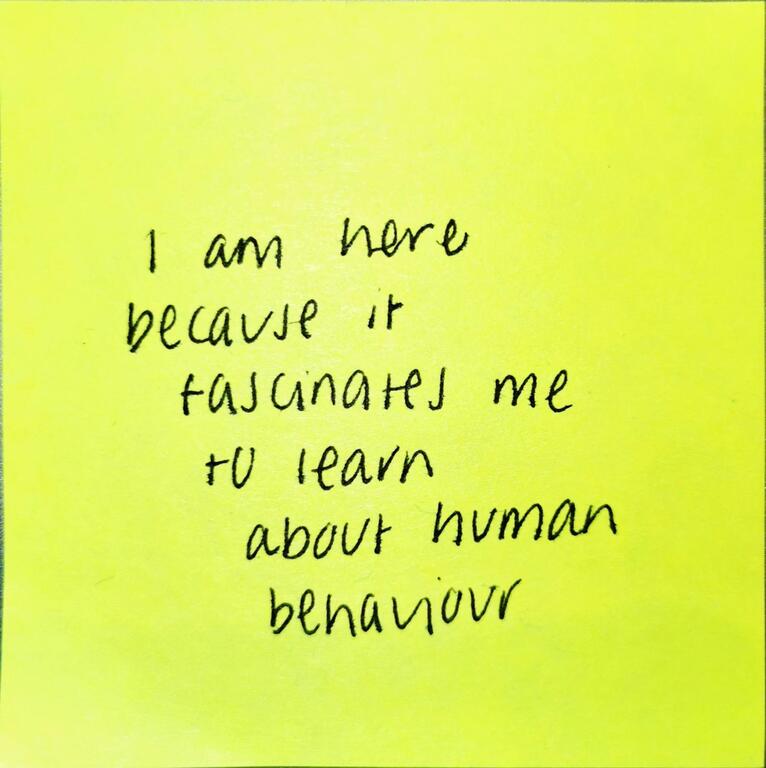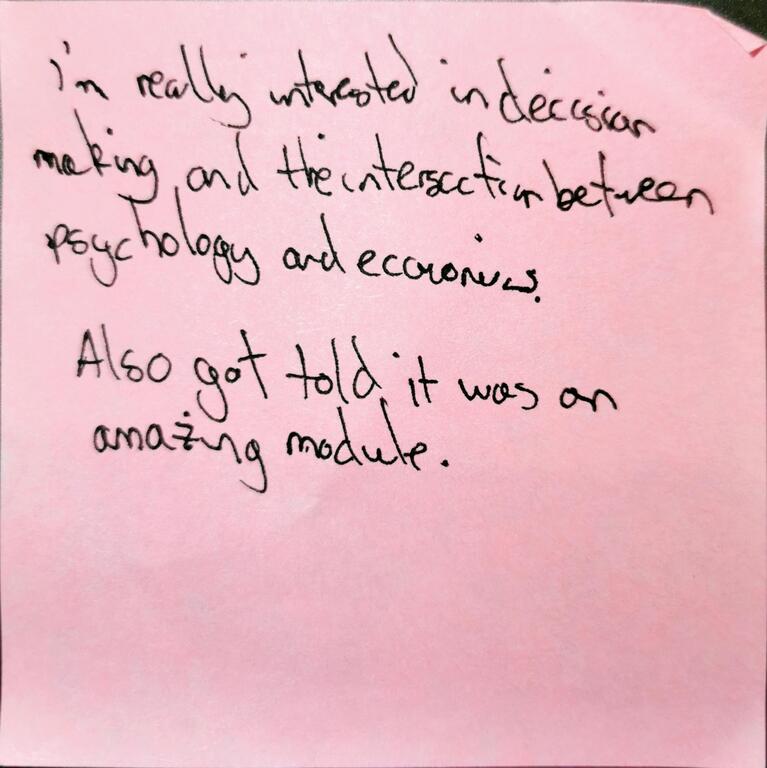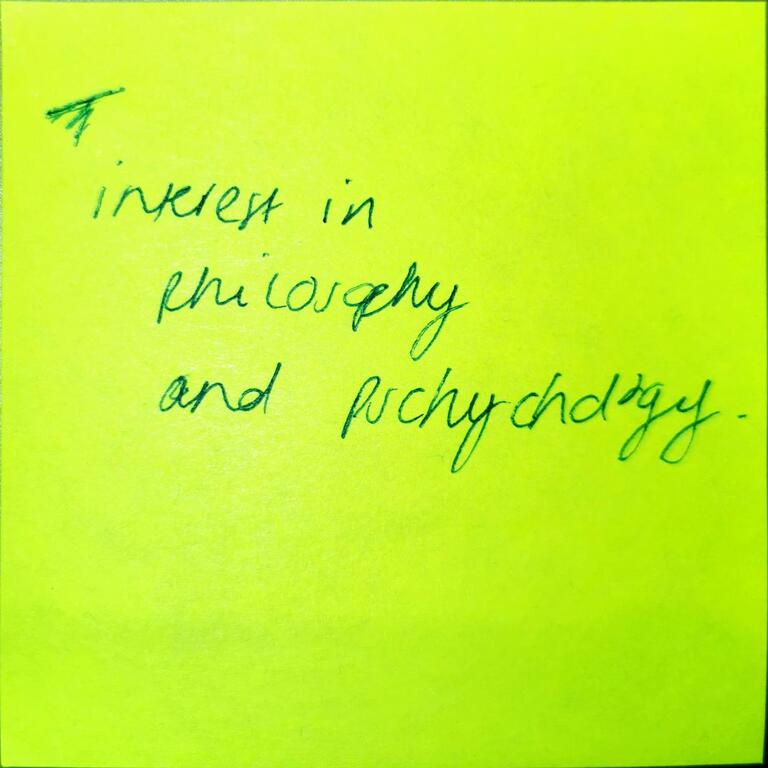Click here and press the right key for the next slide.
(This may not work on mobile or ipad. You can try using chrome or firefox, but even that may fail. Sorry.)
also ...
Press the left key to go backwards (or swipe right)
Press n to toggle whether notes are shown (or add '?notes' to the url before the #)
Press m or double tap to slide thumbnails (menu)
Press ? at any time to show the keyboard shortcuts
Introduction
featuring questions from
- zahidnasser
- hespercheung
+ students from 2022–23

challenge
Discover why people act,
individually and jointly.


Question 1
What is the relation between an instrumental action and an outcome to which it is directed?
Standard Answer
The outcome to which an instrumental action is directed is that outcome specified by the intention which caused it.
Question 2
What distinguishes your actions from things that merely happen to you?
Standard Solution
Your actions are those events which stand in an appropriate causal relation to an intention of yours.
?
JoelK57 [2022–3]
Would an involountary action which still aims to achieve a goal (which we may desire), such as coughing to clear our throat, count as an instrumental action? Yes! (if involuntary actions exist)
glossary: An action is instrumental if it happens in order to bring about an outcome.
Question 1
What is the relation between an instrumental action and an outcome to which it is directed?
Standard Answer
The outcome to which an instrumental action is directed is that outcome specified by the intention which caused it.
Question 2
What distinguishes your actions from things that merely happen to you?
Standard Solution
Your actions are those events which stand in an appropriate causal relation to an intention of yours.
zahidnasser
Regarding Question 1: 'What is the relation between an instrumental action and the outcome or outcomes to which it is directed?'.
It is said that we can coherently answer this question via habitual processes without invoking intention at all,
but I struggle to see how this is possible.
Isn't intention always present in an instrumental action, even if it is just performed ‘out of habit’?
^ there may not be explicit conscious intention, but there will always be some form of underlying intention
Reply to zahidnasser
1. intentions are caused by beliefs and desires [premise]
2. intentions only explain actions that are appropriately related to them
3. habitual processes sometimes cause actions contrary to our current desires [tbs]
∴
4. such actions are not explained by intentions
Question 1
What is the relation between an instrumental action and an outcome to which it is directed?
Standard Answer
The outcome to which an instrumental action is directed is that outcome specified by the intention which caused it.
Question 2
What distinguishes your actions from things that merely happen to you?
Standard Solution
Your actions are those events which stand in an appropriate causal relation to an intention of yours.
How do the philosophical theories relate to psychological discoveries about why people act?
case study: habitual and goal directed processes
Lecture 01: There are theoretically coherent models
Lecture 02: ... but does either actually explain any actions?